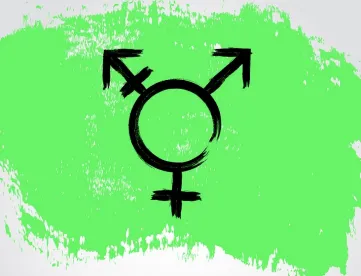The New York City Commission on Human Rights (the “Commission”) has issued a Notice of Public Hearing and Opportunity to Comment on proposed rules to establish certain definitions and clarify the scope of protections against discrimination with respect to gender identity or expression under the New York City Human Rights Law (“NYCHRL”). The proposed definitions and types of unlawful discriminatory practices to be codified are largely drawn from the Commission’s Legal Enforcement Guidance on Gender Identity/Gender Expression, issued in 2015.
The NYCHRL prohibits discrimination in employment (as well as in public accommodations and housing) based on actual or perceived sex, gender identity, and gender expression, including a person’s actual or perceived gender-related self-image, appearance, behavior, expression, or other gender-related characteristic regardless of the sex assigned to that person at birth. The proposed rules would establish definitions under the NYCHRL for a number of gender-related terms, namely: “sex,” “gender,” “gender identity,” “gender expression,” “cisgender,” “gender non-conforming,” “intersex,” and “transgender.”
The proposed rules would further codify certain unlawful discriminatory practices based on gender identity or expression, as follows:
Deliberate misuse of an individual’s chosen name, pronoun or title where the refusal is motivated by such individual’s gender.
Examples of violations would include:
-
deliberately calling a transgender individual by a pronoun other than the one that they have made clear they prefer to use;
-
conditioning an individual’s use of their chosen name on a court-ordered name change or providing identification in that name (except as where may be required by law); and
-
asking or requiring an individual to provide information about their medical history or proof of having undergone medical procedures to use their chosen name, pronoun, or title.
Asking an employee in good faith if they have a chosen name or pronoun they would prefer to be used would be not a violation of the NYCHRL.
Refusing to allow individuals to use single-sex facilities or participate in single-sex programs consistent with their gender identity.
Examples of violations would include:
-
prohibiting a transgender or gender non-conforming person from using the single-sex restroom, locker room or other facility consistent with their gender identity or expression;
-
requiring proof of gender in order for a transgender or gender non-conforming person to be given access to such single-sex facilities;
-
requiring a transgender or gender non-conforming person to use a single-occupancy restroom instead of a shared single-sex restroom; and
-
forbidding a transgender person from sharing a room with people of the same gender in a residential treatment facility with single-sex shared rooms.
Under the proposed rules, it would not be a defense to a charge of discrimination under the NYCHRL that other employees, clients, customers, or other program participants may object to sharing a facility or participating in a program with a transgender or gender non-conforming person.
Imposing different dress or grooming standards based on gender.
Examples of violations would include:
-
requiring different uniforms for men and women, though employers may provide different uniform options that are typically associated with men and women, so long as an employee is free to choose to wear one style instead of the other based on their gender identity or expression; and
-
requiring or permitting only female employees to wear makeup or jewelry.
It would not be a defense to a charge of discrimination under the NYCHRL that a dress code that otherwise violates the rule was implemented to cater to the preferences of clients or customers. The amendments also state that actors may be required to wear gender-specific costumes if required by a specific role.
Failing to provide equal employee benefits regardless of gender.
Covered entities offering benefit plans not subject to the Employee Retirement Income Security Act (“ERISA”) would be required to offer benefits equally to all employees regardless of gender and may not provide health benefit plans that deny, limit or exclude services based on gender. To be non-discriminatory with respect to gender, health benefit plans would not be permitted to exclude coverage for transgender care (also known as transition-related care or gender-affirming care), which may include such things as hormone replacement therapy or hormone suppressors, psychological or psychiatric treatment, voice training, or surgery.
Other examples of violations would include:
-
offering disparate paid parental leave to mothers versus fathers, except that a differential in parental leave for birth mothers would be permissible if based on physical recovery from childbirth; and
-
offering health benefits that exclude coverage for procedures based on gender—for example, offering health benefits that cover prostate cancer screening for cisgender men but not for transgender women.
Using gender as the basis for refusing a request for accommodation.
Gender would not be permitted as the basis for a covered entity to refuse, withhold, or deny a request for accommodation for disability, and employers would be required to treat leave requests to address medical or health care needs related to an individual’s gender identity in the same manner as requests for all other medical conditions.
Other examples of violations would include:
-
providing leave as a reasonable accommodation for a medically necessary surgery for a cisgender employee but denying leave for the same surgery for a transgender employees (for example, reconstructive breast surgery); and
-
requesting medical documentation to verify leave time for transgender employees, but not cisgender employees.
* * *
Comments on the proposed rules are due by September 25, 2018, and may be submitted through the NYC rules website at http://rules.cityofnewyork.us, via email to policy@cchr.nyc.gov, or by mail or fax to the Commission. A public hearing on the proposed rules will also be held on September 25, 2018.




 />i
/>i

